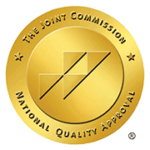As a therapist, I’ve seen firsthand the transformative power of journaling for mental health. Journaling offers a space for self-reflection, emotional processing, and healing. It’s a simple practice with profound benefits, often serving as a gateway to deeper self-awareness and emotional resilience. Whether you’re struggling with anxiety, depression, or just looking for a way to better understand your thoughts and feelings, journaling can be a valuable tool on your mental health journey.
But what makes journaling so effective? Let’s explore the ways it can support your mental well-being and how to get started if you’re new to the practice.
1. Emotional Release
One of the most significant benefits of journaling is that it provides a safe outlet for expressing emotions. Many of us hold in our feelings—whether it’s out of fear of judgment, or because we don’t want to burden others. Journaling allows you to release these emotions in a private, nonjudgmental space. When you put your thoughts and feelings on paper, you create distance between yourself and what you’re experiencing. This distance can offer clarity, helping you process intense emotions like sadness, anger, or frustration in a healthy way.
2. Stress Reduction
We live in a fast-paced world, and stress is a natural part of life. However, unchecked stress can contribute to mental health issues. Journaling helps reduce stress by providing a structured way to organize your thoughts and declutter your mind. When you write about your worries or challenges, you often begin to see patterns, which can lead to problem-solving or at least a clearer understanding of the root causes of your stress. By getting your thoughts out of your head and onto the page, you create room for more positive thinking.
3. Identifying Triggers and Patterns
For those dealing with anxiety, depression, or other mental health challenges, journaling can help you identify triggers and patterns in your thoughts, feelings, and behaviors. Over time, you may notice that certain situations or interactions consistently lead to negative emotions. By becoming more aware of these triggers, you can develop strategies to manage or avoid them in the future. As a therapist, I often encourage clients to review their journal entries to look for these patterns, as it can be a powerful tool for self-discovery.
4. Building Self-Awareness
Journaling is a way to have a conversation with yourself. It encourages introspection, allowing you to explore your inner world and connect with your authentic self. By taking time to reflect on your day, your feelings, and your reactions to different situations, you begin to understand yourself on a deeper level. This self-awareness is key to personal growth, helping you make more informed decisions and align your actions with your values.
5. Gratitude and Positivity
While journaling is often associated with venting frustrations or processing difficult emotions, it’s also a great way to cultivate positivity. Many people find value in keeping a gratitude journal, where they write down things they’re thankful for each day. This practice shifts your focus away from what’s wrong and toward what’s good in your life, which can help reframe your mindset over time. Even on challenging days, there’s always something—however small—to be grateful for, and acknowledging these moments can enhance your overall mood and outlook.
6. Tracking Progress and Growth
One of the most rewarding aspects of journaling is being able to look back and see how far you’ve come. Journals offer a record of your thoughts and emotions over time, which means you can track your progress. Whether you’re working on managing anxiety, healing from trauma, or just aiming to improve your mental health overall, journaling allows you to document the small steps you take every day. It’s often in reviewing these entries that you realize your growth, which can be incredibly empowering.
7. Getting Started with Journaling
If you’re new to journaling, it can feel overwhelming at first—especially if you’re not sure where to begin. Here are a few tips to help you get started:
- Set aside time: Start by dedicating just 5-10 minutes each day to writing. It doesn’t have to be long or perfect—what matters is making it a consistent habit.
- Start with prompts: If you’re not sure what to write about, try using journaling prompts like, “How am I feeling today?” or “What’s been on my mind lately?”
- Be honest: Journaling is a private practice, so there’s no need to censor yourself. Be honest about your feelings and experiences, even if they’re difficult to confront.
- Don’t overthink it: There’s no right or wrong way to journal. Some people prefer bullet points, others write long paragraphs, and some even sketch. Find what works for you.
8. Journaling and Therapy
In therapy, I often recommend journaling as a complement to our work together. Journaling between sessions helps clients continue processing their thoughts and emotions, and it can bring deeper insights to our discussions. It also encourages clients to take an active role in their healing process, giving them a sense of control and empowerment.







